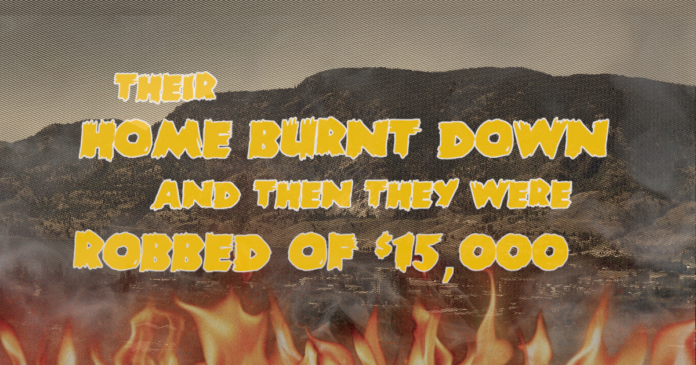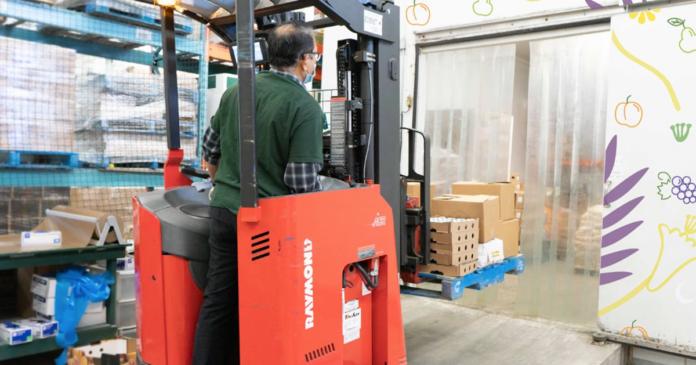British Columbia’s Okanagan region is known for its fine wines, unique topography and tourist attractions – but its cities are also getting a reputation for reporting some of the worst crime statistics in the past year.
In 2022, Statistics Canada reported that Kelowna had a Crime Severity Index (CSI) of 122.3 – the highest in the entire country.
The CSI is a data point used by the Canadian government to track changes in the severity of police-reported crime each year. Unlike traditional “crime rate” measurements, the CSI takes into account the nature of the crimes committed and attributes weights to the specific seriousness of the incident.
Penticton – which conventionally means “a place to stay forever” in the Okanagan language – no longer holds the promise of permanence for one family that has recently found itself a victim of the region’s growing problem with crime.
Wiltse is quiet, idyllic and at the same time, a perfect target for thieves, as the Sylvestres had the misfortune to discover.
The neighbourhood of Wiltse is located in the city’s south and it offers panoramic views of the city and waters below. North of the Skaha Bluffs Provincial Park, the area is cradled by the Okanagan highlands – seemingly protected from the conflicts of bustling city life below.
Wiltse is quiet, idyllic and at the same time, a perfect target for thieves, as the Sylvestres had the misfortune to discover.
In an interview with True North, resident Katherina Sylvestre related how her family had $15,000 worth of tools stolen from their burnt down home last September while they were preparing to restore the smoke-charred property.
“We’d actually just dropped off our personal tools that Saturday night and we were going to get some work in on Sunday morning to get it ready for the electricians to come in, ironically enough, so that we could hook up enough power to run our security cameras,” said Sylvestre.
“Knowing we were going to be bringing stuff in, (the robbers) came in that Saturday or Sunday morning early,” she continued.
“The homelessness has gone up. Crime rates have gone up, you can guarantee that certain things get stolen more often.”
“They took the power tools, all Milwaukee, contained in two packouts, the tool pouch and stuff from our garage that we had in there. We’re upset about the tools that my husband and son were using on a daily basis.”
Sylvestre suspects somebody employed to do work on the house was responsible but is hard-pressed to find any proof given the circumstances. The insurance company was able to cover a fraction of the costs, about $5,000, but the rest will be a write off for the Sylvestres.
“I know that one day that (the alleged suspects) were there, there were two guys and a woman there – a woman who was about my size and my work boots went missing after,” Sylvestre told True North.
“(The police) know who it was but we can’t prove it with concrete proof so we can’t do anything. They’re kind of watching them,” said Sylvestre.
The thieves seemed to have taken their time rummaging through their property, she explained over the phone, even leaving chip wrappers and orange peels behind on the ground. There was some evidence that the culprits tried to hide their tracks making it seem as though they had broken into the place instead of using a key, as Sylvestre suspected.
“Our side door where the fire occurred was only boarded up. The one part that they kicked in to make it look like they broke into that side piece was only 11 inches high, so I know they couldn’t have fit into there and you don’t see scuffle marks of them trying to climb through but that’s the only thing that looked like they had broken, but we know they used the key,” she explained.
“I don’t go downtown at night, it looks like The Walking Dead.”
Crimes like these often go unsolved or unreported as the general public is preoccupied with shocking stories of urban random attacks in Vancouver and Victoria. Meanwhile, rural British Columbians continue to carry on in their usual stoic manner hoping that things will one day get better.
Penticton too had some unsightly numbers to report in 2021. That year, the city witnessed 21,604 reported crimes per 100,000 residents.
Meanwhile, police officers struggle to keep up with the number of cases. According to BC’s Ministry of Public Safety Police Resources in British Columbia, 2021 report, Penticton RCMP reported some of the highest caseloads. That year, each municipal officer was expected to juggle 155 cases on average and their provincial counterparts had a caseload of 112 per officer. In comparison, Vancouver municipal police officers faced a caseload of 49 per officer.
The disproportional impact of crime in rural and northern areas is experienced across Canada. Statistics Canada data shows that while rural areas only accounted for 15% of the population of provinces, they experienced 24% of violent crimes, 30% of traffic offenses and 18% of the nation’s property crimes.
Crimes like these often go unsolved or unreported as the general public is preoccupied with shocking stories of urban random attacks in Vancouver and Victoria.
As for the Okanagan, some have argued that the data isn’t factoring in the fluctuating seasonal population which gives cities like Penticton and Kelowna a bad reputation that’s not in line with the reality experienced by residents.
However, Sylvestre has noticed a marked change in her life since moving to Penticton eight years ago.
“The homelessness has gone up. Crime rates have gone up, you can guarantee that certain things get stolen more often,” said Sylvestre.
“I don’t go downtown at night, it looks like The Walking Dead,” she joked, in reference to the popular post-apocalyptic zombie TV series.
Do you live in a rural area and have recently experienced crime or are worried about the safety of your community? Contact True North and one of our journalists will get back to you.



























